Honey Bee's
authereray
8 years ago
Featured Answer
Sort by:Oldest
Comments (22)
stockergal
8 years agochickencoupe
8 years agoRelated Discussions
Honey bee hive under a potted plant?
Comments (17)I just saw this today. Honey bees are congregating at the bottom of the plant in the soil. My neighbors have a hive. The first time I am seeing this. The plant sits in a mesh encasing the whole flower pot with the plant open on where the bees hang out. I have 2 other similar plants with the mesh enclosure. One above the bee one and the other on the other side of the porch but they only go to that one plant....See Morehoney bees? wild bees?
Comments (1)There are many 'wild' European bees out and about. Keepers do not capture all the swarms from their hives. I see swarms go by the house every year; actually, I hear them before I see them. On one occasion, I put an extracted super out to let the bees clean it up before being put into storage. I put a bottom board and top on it to keep the summer rains and mice out, and watched the bees come and go. I kept an eye on it, in passing, for a week or so, and the bees were still active when there hadn't been that much to clean up. I took a look inside and a swarm had taken up residence. I had this super sitting on a lawn chair on the north side of the garage, but the 'big boys & girls' say the best way to entice a swarm is to place a hive body under the eaves of a building at the corner. Terran...See MoreSquash bee or Honey bee?
Comments (3)Larry, you can tell a yellow jacket from a honey bee by seeing if their abdomen has fuzz or not and by how they approach their "hive" entrance. The honey bee lands just before the entrance and walks in. The yellow jacket zig zags a bit, in the air, and then flies right in. George Tahlequah, OK...See MorePlease help me feed my Honey Bees
Comments (14)Pussy willow is one of the earliest pollen sources, but keep in mind that it is a small shrub. Easy to get plants, though; just cut small branches & root them in water. They grow quickly & will begin blooming in a couple years. Grape hyacinth is a good early nectar source, honey bees are swarming on mine when in bloom. They multiply quickly into clumps, and will multiply even more rapidly if divided. Malva sylvestris "Zebrina" is an annual flowering mallow, related to hollyhocks. It will bloom continuously from early Summer to late Fall. What makes this flower special is that it will usually survive the first frost or two, and is a good pollen source when most other flowers are done for the year. I plant it freely throughout my vegetable garden, honeybees will feed on them until a hard freeze... probably the last thing they feed on. It volunteers about as easily as its wild mallow cousins. Surprisingly, another good late-flowering bee plant is garlic chives... so they double as edible landscaping. The plants flower in August/September here, and bloom for several weeks. They are perennial, and multiply quickly to form clumps... but can be invasive, so are best located in a place of their own, where they can run freely. Be sure to dead head the flower stalks before the seeds mature....See Moreauthereray
8 years agoAmyinOwasso/zone 6b
8 years agoMacmex
8 years agosammy zone 7 Tulsa
8 years agostockergal
8 years agoMacmex
8 years agosammy zone 7 Tulsa
8 years agoOkiedawn OK Zone 7
8 years agosammy zone 7 Tulsa
8 years agoAmyinOwasso/zone 6b
8 years agoauthereray
8 years agoMacmex
8 years agoOkiedawn OK Zone 7
8 years agoAmyinOwasso/zone 6b
8 years agomiraje
8 years agoAmyinOwasso/zone 6b
8 years agoOkiedawn OK Zone 7
8 years agomiraje
8 years agojmichigan
8 years agolast modified: 8 years ago
Related Stories

FARM YOUR YARDHello, Honey: Beekeeping Anywhere for Fun, Food and Good Deeds
We need pollinators, and they increasingly need us too. Here, why and how to be a bee friend
Full Story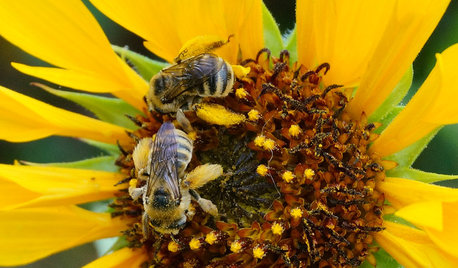
EARTH DAY12 Entertaining ‘Bee-haviors’ of Native Bees
The parade of pollinator antics is another reason to create a garden that nurtures native bees
Full Story
GARDENING FOR BUTTERFLIESGardening for the Bees, and Why It’s a Good Thing
When you discover how hard bees work for our food supply, you may never garden without them in mind again
Full Story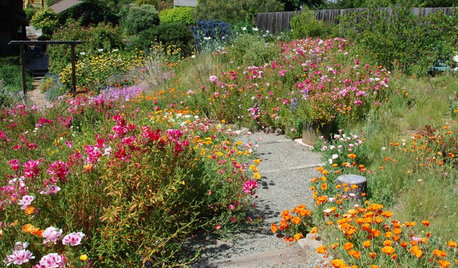
EARTH DAYHow to Design a Garden for Native Bees
Create a garden that not only looks beautiful but also nurtures native bees — and helps other wildlife in the process
Full Story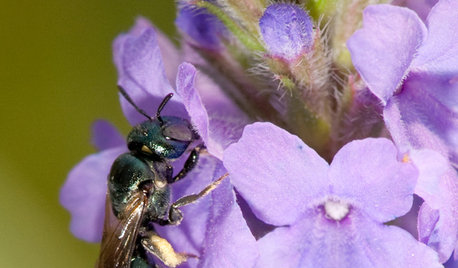
GARDENING GUIDESSmall Carpenter Bees Are Looking for a Home in Your Plant Stems
Provide flowers and nesting sites in your garden for this beautiful, tiny, metallic blue wild bee — your plants will thank you
Full Story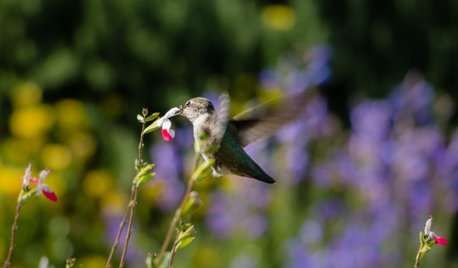
GARDENING GUIDESAttract Hummingbirds and Bees With These Beautiful Summer Flowers
Roll out a welcome mat for pollinators to keep your landscape in balance and thriving
Full Story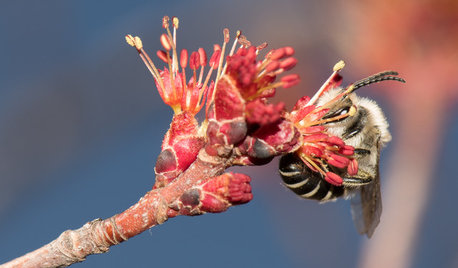
GARDENING GUIDESInvite Cellophane Bees to Your Garden by Providing Patches of Bare Soil
Look for cellophane bees (Colletes) pollinating flowering trees and shrubs in U.S. gardens this spring
Full Story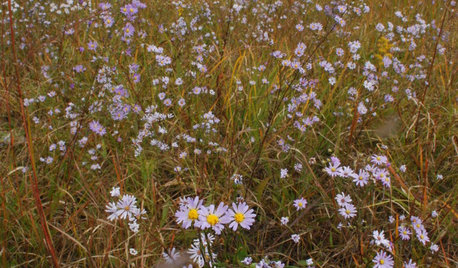
GARDENING GUIDES15 Native Flowers That Feed Native Bees
These perennials offer superfood to hundreds of bees and are gorgeous in their own right
Full Story
SHOP HOUZZShop Houzz: Get the Buzz on the Bee Motif
Inject a bee-dazzling energy into your rooms with bees, honeycombs and hive motifs
Full Story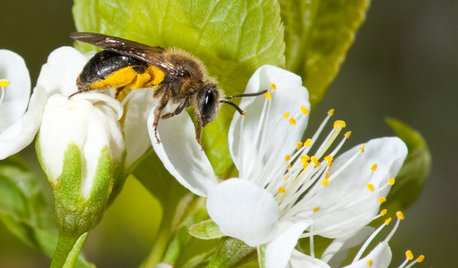
GARDENING GUIDESInvite Mining Bees to Your Garden by Planting Their Favorite Plants
Look for mining bees (Andrena) pollinating woodland wildflowers in U.S. gardens this spring
Full StorySponsored



authererayOriginal Author